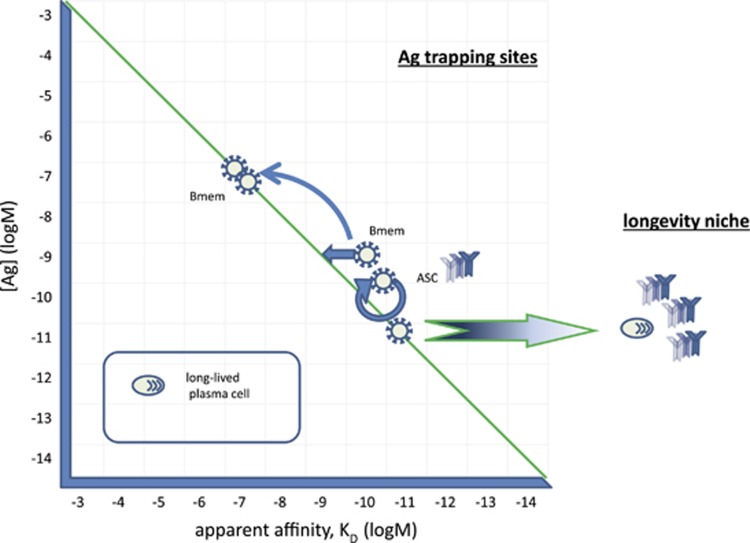Figure 5.
Generation of memory and antibody-secreting cells. Cycling cells can reach their comfort zone by modulating their BCR signals and searching for a niche where a BCR ligand can provide survival signal. Until antigen concentration decreases, these cells will continue to secrete antibodies and divide. Ideal sites for these cells, bone marrow perivascular niche, splenic marginal zone, lymph node subcapsular sinus, tonsillar epithelium, subepithelial dome of Peyer's patches are close to sources of antigen and are equipped with antigen-presenting cells. Cells with similar BCR engagement may therefore reach two different states: memory by BCR signaling adjustment and ASC by cycling and exerting effector function. ASC, which do reach the BCR comfort zone exit cell cycle and start terminal differentiation. Of these cells, some will find a niche suitable for sustaining longevity and become long-lived plasma cells. These terminally differentiated cells lose BCR and become independent of antigen concentration regulation.

